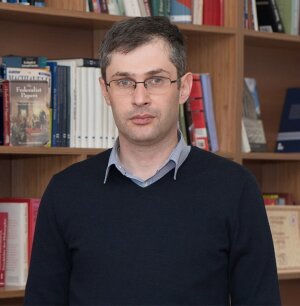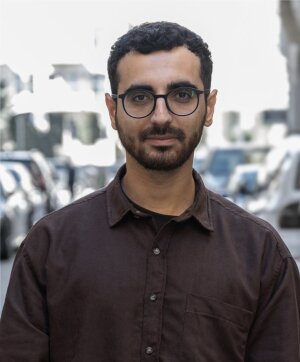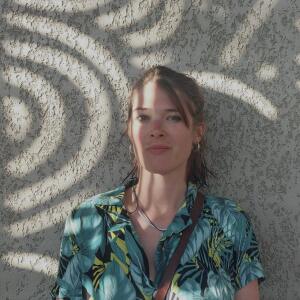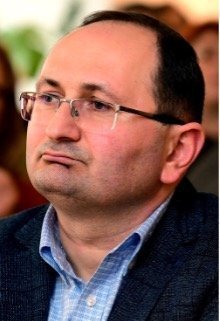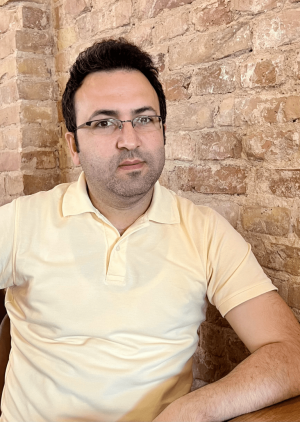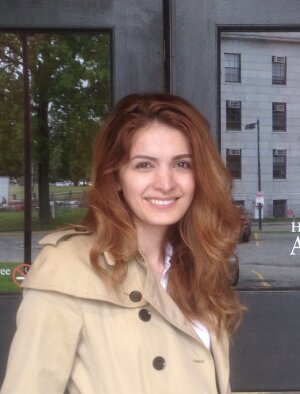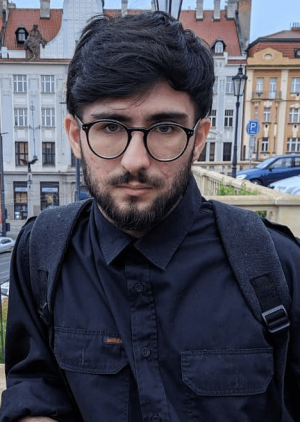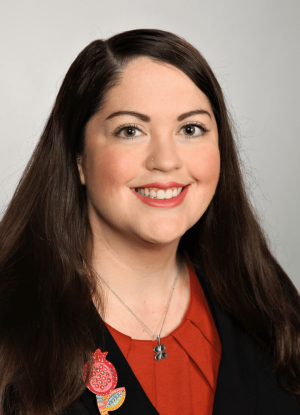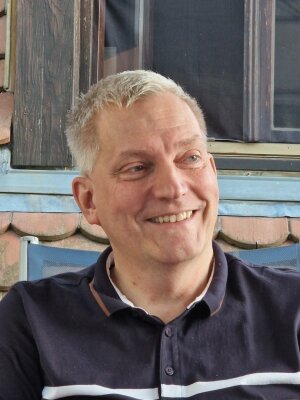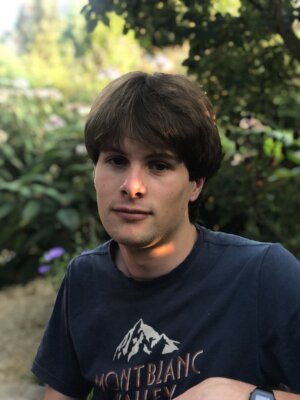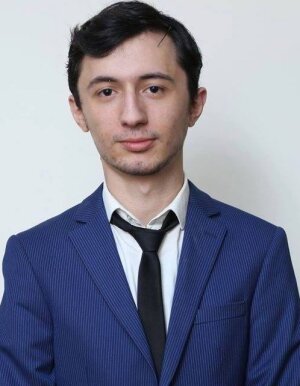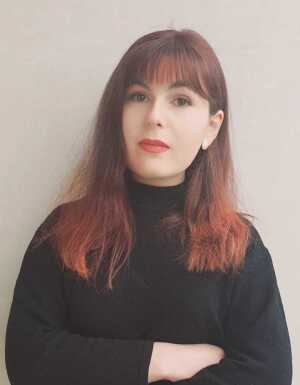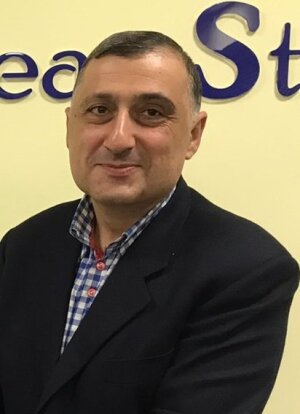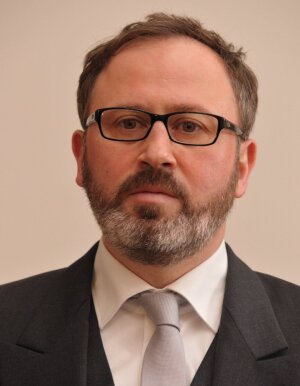Fellows
David Aprasidze
Image: David AprasidzeProf. Dr. David Aprasidze
June – July 2024
David Apradize is a senior research fellow at the JENA-Cauc project focusing on societal resilience, particularly how civil society acts in times of political crises and geopolitical shifts. He is a professor of Political Science at Ilia State University, Tbilisi (Georgia), with academic interests in political transformation and democratization, Europeanization in the EU neighborhood, and regional politics. He received his Ph.D. from Hamburg University, Germany in 2003. He was a Fulbright scholar at Duke University, North Carolina, United States, 2009-2010. Besides academic activities, he has worked in Georgia for public agencies (Ministry of Foreign Affairs, Ministry of Education and Science) and international NGOs (Konrad Adenauer Foundation). He has experience in higher education management and reform.
Najmin Kamilsoy
Image: Najmin KamilsoyNajmin Kamilsoy
June - July 2024
Najmin Kamilsoy is a Ph.D. candidate at the Department of Public and Social Policy at Charles University in Prague, where his doctoral research focuses on organizational behaviors in civil society in two South Caucasus countries - Azerbaijan and Georgia. He is particularly exploring the neo-institutional and resource dependency factors in the push for professionalization of civil society organizations (CSOs) and outcomes for their citizen engagement. Kamilsoy held a visiting PhD fellowship at the Center for Eastern European Studies of the University of Zurich in 2021. He is a co-founder and policy analyst of Agora Analytical Collective, a think tank that has been dealing with the analysis of social and economic policies in Azerbaijan since 2022. His research and analytical interests include Western development aid and policy-making in authoritarian contexts. During his fellowship at the FSU Jena within the JENA-CAUC project, Kamilsoy will work on delienating the organizational effects of external resources on CSOs as well as the effects of the states' regulatory assaults on the CSO domains in the region.
Klaudia Kosicińska
Image: Klaudia KosicińskaDr. Klaudia Kosicińska
November 2023 - March 2024
Klaudia Kosicińska is a research fellow at the JENA-Cauc project and a social anthropologist focusing on mobility and migration issues in south-eastern borderlands of Georgia. She earned her PhD degree at the Institute of Slavic Studies of the Polish Academy of Sciences in November 2023. She is currently conducting a project on mobility and neighbourhood relations in Georgia (National Science Center, Poland) and is a co-author of the grant project entitled „Azerbaijanis and Armenians in Georgia, uncertain peace and conflict mobility in a context of the 2020 Nagorno-Karabakh war” in cooperation with Tbilisi State University (2021-2023 ) financed by the National Agency for the Academic Exchange (Poland). Klaudia’s research for the JENA-CAUC project focuses on language policy in Georgia, linguistic landscape and translocal practices in the sociolinguistic perspective among residents (Azerbaijanis, Armenians and Georgians) of the Kvemo Kartli region in Georgia.
Giorgi Gvalia
Image: Giorgi GvaliaProf. Dr. Giorgi Gvalia
July - August 2023
Giorgi Gvalia is a senior research fellow at the JENA-Cauc project focusing on societal resilience. He is a Vice-Rector for Academic Affairs and professor of Politics and International Relations at Ilia State University, Tbilisi (Georgia). In 2013-2021 he served as the dean of the School of Arts and Sciences at Ilia State University. His academic interests include theories of international relations, small states in international relations, Europeanization in the Post-Soviet Space, Post-Soviet politics and international relations. His publications have appeared in the journals Security Studies, Foreign Policy Analysis and East European Politics. His current research focuses on geopolitical blockages to EU democracy promotion in Eastern Neighborhood, Georgia’s foreign policy and youth attitudes towards EU in Georgia.
Besides academic positions Giorgi Gvalia has worked at several governmental and non-governmental institutions, including Georgian Association for Public Opinion Research (President), National Security Council of Georgia (Senior Adviser) and Georgia’s Security Analysis Center (Senior Researcher).
Agshin Umudov
Image: Agshin UmudovDr. Agshin Umudov
July - September 2023
From July to September 2023, Dr. Agshin Umudov is a senior fellow for the Jena-Cauc resilience project, investigating the EU resilience building policies on climate change in the South Caucasus. In 2020 Mr. Umudov received his Dr. phil. degree in Political Science from the Otto–Suhr Institute for Political Sciences of Free University of Berlin/Germany. In his doctoral research, he looked at two different environmental policy approaches in Azerbaijan-one towards the question of greenhouse gas emissions and the other towards oil pollution in the Absheron Peninsula. Put differently, his dissertation explainsAsymmetric Environmental Policy in Azerbaijan. He gained an MA in Global Studies from Leipzig University/Germany and an M.Sc. in Peace and Conflict Research from Uppsala University/Sweden. In addition, he holds a BA in International Relations from Qafqaz University/Azerbaijan. In 2011-2012 and 2015-2016 he worked as a research assistant and lecturer at the Department of European Studies and International Relations of Qafqaz University. From September 2022 to January 2023, Mr. Umudov was a visiting scholar at the Center for Eastern European Studies at the University of Zurich/Switzerland where he worked on a research project titled “The Great Game 2.0: Comparative Grand Politics of China, Russia and Turkey in Central Asia”. His substantive research interests are in comparative politics of environmental protection and climate change, democratization and Europeanization in the post-Soviet countries, power politics in Central Asia and the Caucasus.
Nazrin Gadimova
Image: Nazrin GadimovaDr. Nazrin Gadimova
June - August 2023
Nazrin Gadimova is a Research Fellow at the Jena-CAUC project (June-August 2023), focusing on the analysis of building resilience to conflict-driven insecurity in the South Caucasus and the prospect of Armenian-Azerbaijani conflict transformation process. She received her Ph.D. degree in International Relations from Kadir Has University, Istanbul, and M.A. degree in History of International Relations from London School of Economics and Political Science. Her research interests include theories of nationalism and constructivism, identities, social aspects and narratives of the Nagorno-Karabakh conflict and conflict transformation.
Bahruz Samadov
Image: Bahruz SamadovBahruz Samadov
April - July 2023
Bahruz Samadov is a PhD candidate at Charles University, the Institute of Political Studies in Prague. He holds a Master's Degree in International Relations from Central European University. His research interests are hegemonic projects in Azerbaijan, post-structuralist approaches to hegemony, nationalism, legitimacy, and authoritarian governance practices. In the framework of the Jena-Cauc project, he will specifically focus on the exclusionary practices in Azerbaijan in 2013 and 2019-2020.
Karli-Jo Storm
Image: Karli-Jo StormDr. Karli-Jo Storm
March 2023 - March 2024
Karli-Jo Storm is serving as a part-time international fellow for the JENA-CAUC project from the period of March 2023-March 2024. Karli earned her dual B.A. degree in International Relations and Politics from Drake University (USA), her M.A. degree in Russian and East European Studies from Indiana University (USA) and her Ph.D. in Human Geography from the University of Eastern Finland. Karli is a two-time Fulbright recipient, having spent time in Azerbaijan (2009-10) and Finland (2013-14) as a Fulbright Fellow. Karli's research for the JENA-CAUC project focuses upon Azerbaijan's Talysh population, examining in particular the resilience of perceived ethno-national identities across time and space, such as among members of this community living in Eurasia, North America, and Western Europe. Her research interests include studies of borderlands and borderland populations, identity negotiation, and concepts of Space and Place within the geographical context of the South Caucasus.
Oliver Reisner
Image: Matthias Theodor VogtProf. Dr. Oliver Reisner
October 2022 - January 2023
Oliver Reisner is a senior research fellow at the JENA-Cauc project focusing on societal resilience. He is professor in European and Caucasian Studies at Ilia State University Tbilisi (Georgia). He received his Dr. phil. degree in East European History for a thesis on nation formation in Georgia at Georg-August-University Göttingen (2000) and coordinated the MA programme “Central Asia / Caucasus” at Humboldt University Berlin (2000-2003). He published a monograph and 28 papers in German, Georgian and English journals and volumes, and Georgia country reports for the Bertelsmann Transformation Index. He is a board member of the “Association of European Studies for the Caucasus” and member of the advisory council of the “European Journal of Minority Issues”. Currently, he is leading a research project “In Search of Social Cohesion in Minor Urban Settings of Georgia” (Rustaveli National Science Foundation). His research interests are civic integration, politics of memory and history of Caucasian Studies from the 18th century until today.
Thijs Korsten
Image: Thijs KorstenThijs Korsten
July - December 2022
Thijs Korsten is a junior fellow for the Jena-Cauc project from July to December 2022, examining the practices and contestations of resilience-building interventions in post-war Armenia. Thijs holds an MA in International Relations from Central European University, and is primarily interested in critical sociological approaches to ethnoterritorial conflict, knowledge production, elite networks, and international intervention.
Nijat Eldarov
Image: Nijat EldarovNijat Eldarov
June - August 2022
From June to August 2022, Nijat Eldarov is an international fellow for the Jena-Cauc resilience project. He investigates the enactment of multiple ontologies of resilience in the EU's migration governance with Georgia and Azerbaijan in order to conceptualize the (im)possibility of subversive action against the "policy without politics" ethos resilience often promotes. Mr. Eldarov holds a BA in International Relations from the Academy of Public Administration (Azerbaijan) and MSc in European Affairs from Lund University (Sweden). His research interests lie at the intersection of critical security studies, science and technology studies, and political ecology and can be situated in the material turn in International Relations.
Natia Botkoveli
Image: Natia BotkoveliNatia Botkoveli
June – December 2021
From June to December 2021, Natia Botkoveli is an international fellow for the Jena-Cauc resilience project. She investigates the significance and influence of minority languages on resilience building in the South Caucasus. Ms. Botkoveli obtained her International Joint Master’s degree in Sociolinguistics and Multilingualism from Vytautas Magnus University (Lithuania), University of Mainz (Germany) and Stockholm University (Sweden). She holds a Bachelor’s degree in Philology from Tbilisi State University (Georgia). Her main research interests and experiences include language policy planning, minority languages and language rights.
Ashot Aleksanyan
Image: Ashot AleksanyanProf. Dr. Ashot Aleksanyan
September 2021 – February 2022
From September 2021 to February 2022, Prof. Dr. Ashot Aleksanyan will be an international fellow for the Jena-Cauc project. He will utilize comparative analysis to examine the different dimensions of European integration between the South Caucasus and the German public diplomacy domain. Dr. Aleksanyan is a full professor at Yerevan State University in Armenia, where he also earned his Doctor of Sciences (Dr. Habil.) and Doctor of Politics (PhD) degrees, as well as an undergraduate Diploma. His experience and main research interests involve civil society organizations in post-Soviet countries, European integration with the South Caucasus, public diplomacy, social partnership, and human rights and freedoms.
Elguja Khokrishvili
Image: Elguja KhokrishviliDr. Elguja Khokrishvili
June – September 2021
From June to September 2021, Dr. Elguja Khokrishvili is an international fellow for the Jena-Cauc resilience project. During the course of his fellowship, he researches economic resilience in Georgia. Mr. Khokrishvili holds a doctoral degree in Economics and Social Science from University of Potsdam (Germany) and earned a Master's and Bachelor’s degree at the same university. His main research interests include regional economic development, sustainable fiscal and tax policy, fiscal decentralisation and green economy.
